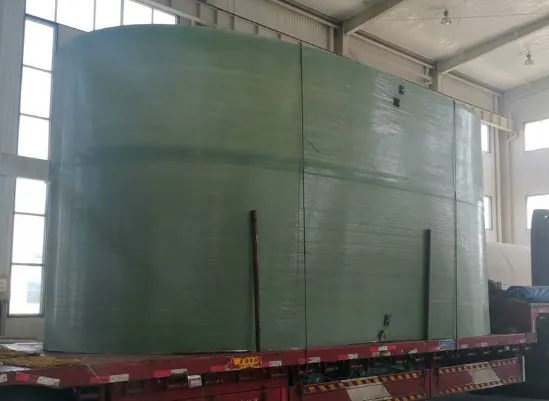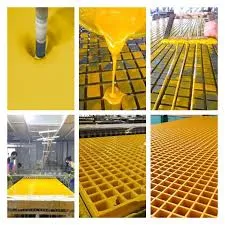
-
 Afrikaans
Afrikaans -
 Albanian
Albanian -
 Amharic
Amharic -
 Arabic
Arabic -
 Armenian
Armenian -
 Azerbaijani
Azerbaijani -
 Basque
Basque -
 Belarusian
Belarusian -
 Bengali
Bengali -
 Bosnian
Bosnian -
 Bulgarian
Bulgarian -
 Catalan
Catalan -
 Cebuano
Cebuano -
 China
China -
 China (Taiwan)
China (Taiwan) -
 Corsican
Corsican -
 Croatian
Croatian -
 Czech
Czech -
 Danish
Danish -
 Dutch
Dutch -
 English
English -
 Esperanto
Esperanto -
 Estonian
Estonian -
 Finnish
Finnish -
 French
French -
 Frisian
Frisian -
 Galician
Galician -
 Georgian
Georgian -
 German
German -
 Greek
Greek -
 Gujarati
Gujarati -
 Haitian Creole
Haitian Creole -
 hausa
hausa -
 hawaiian
hawaiian -
 Hebrew
Hebrew -
 Hindi
Hindi -
 Miao
Miao -
 Hungarian
Hungarian -
 Icelandic
Icelandic -
 igbo
igbo -
 Indonesian
Indonesian -
 irish
irish -
 Italian
Italian -
 Japanese
Japanese -
 Javanese
Javanese -
 Kannada
Kannada -
 kazakh
kazakh -
 Khmer
Khmer -
 Rwandese
Rwandese -
 Korean
Korean -
 Kurdish
Kurdish -
 Kyrgyz
Kyrgyz -
 Lao
Lao -
 Latin
Latin -
 Latvian
Latvian -
 Lithuanian
Lithuanian -
 Luxembourgish
Luxembourgish -
 Macedonian
Macedonian -
 Malgashi
Malgashi -
 Malay
Malay -
 Malayalam
Malayalam -
 Maltese
Maltese -
 Maori
Maori -
 Marathi
Marathi -
 Mongolian
Mongolian -
 Myanmar
Myanmar -
 Nepali
Nepali -
 Norwegian
Norwegian -
 Norwegian
Norwegian -
 Occitan
Occitan -
 Pashto
Pashto -
 Persian
Persian -
 Polish
Polish -
 Portuguese
Portuguese -
 Punjabi
Punjabi -
 Romanian
Romanian -
 Russian
Russian -
 Samoan
Samoan -
 Scottish Gaelic
Scottish Gaelic -
 Serbian
Serbian -
 Sesotho
Sesotho -
 Shona
Shona -
 Sindhi
Sindhi -
 Sinhala
Sinhala -
 Slovak
Slovak -
 Slovenian
Slovenian -
 Somali
Somali -
 Spanish
Spanish -
 Sundanese
Sundanese -
 Swahili
Swahili -
 Swedish
Swedish -
 Tagalog
Tagalog -
 Tajik
Tajik -
 Tamil
Tamil -
 Tatar
Tatar -
 Telugu
Telugu -
 Thai
Thai -
 Turkish
Turkish -
 Turkmen
Turkmen -
 Ukrainian
Ukrainian -
 Urdu
Urdu -
 Uighur
Uighur -
 Uzbek
Uzbek -
 Vietnamese
Vietnamese -
 Welsh
Welsh -
 Bantu
Bantu -
 Yiddish
Yiddish -
 Yoruba
Yoruba -
 Zulu
Zulu
Feb . 17, 2025 15:15
Back to list
Covers
Fiberglass duct systems, highly regarded for their superior corrosion resistance, have carved a niche in various industries such as HVAC, marine, and chemical processing. The inherent strength of fiberglass, combined with its unique attributes, offers a solution to one of the most persistent problems faced by duct systems globally corrosion. Understanding the composition and advantages of fiberglass ducts can significantly enhance system longevity and efficiency.
In the chemical processing industry, where ducts are often exposed to harsh chemicals and environmental fluctuations, fiberglass has proven to be an authoritative choice. Its ability to withstand aggressive chemicals without eroding or failing positions it as a trusted material. Furthermore, the non-reactive nature of fiberglass ensures that it does not contribute to any chemical reactions, ensuring both safety and efficacy in sensitive processes. Trust in fiberglass ducts is further emphasized by their longevity and minimal maintenance needs. Users consistently report fewer service interruptions and an extended service life, translating to operational efficiency and peace of mind. Moreover, fiberglass is environmentally friendly and fully recyclable, aligning with sustainable practices increasingly valued by industries worldwide. Finally, the versatility of fiberglass ducts enhances their adaptability across varied applications. Whether used in residential, commercial, or industrial settings, they prove consistently reliable. They can be custom-fabricated to meet specific size and performance requirements, ensuring that system requirements can be met without compromise. In summary, fiberglass ducts embody a fusion of corrosion resistance, reduced maintenance demands, and customization capabilities, all contributing to their broad adoption across multiple sectors. As industries continue to prioritize reliability, cost-effectiveness, and environmental responsibility, fiberglass duct systems are evidently positioned as a leading solution to combat corrosion challenges.


In the chemical processing industry, where ducts are often exposed to harsh chemicals and environmental fluctuations, fiberglass has proven to be an authoritative choice. Its ability to withstand aggressive chemicals without eroding or failing positions it as a trusted material. Furthermore, the non-reactive nature of fiberglass ensures that it does not contribute to any chemical reactions, ensuring both safety and efficacy in sensitive processes. Trust in fiberglass ducts is further emphasized by their longevity and minimal maintenance needs. Users consistently report fewer service interruptions and an extended service life, translating to operational efficiency and peace of mind. Moreover, fiberglass is environmentally friendly and fully recyclable, aligning with sustainable practices increasingly valued by industries worldwide. Finally, the versatility of fiberglass ducts enhances their adaptability across varied applications. Whether used in residential, commercial, or industrial settings, they prove consistently reliable. They can be custom-fabricated to meet specific size and performance requirements, ensuring that system requirements can be met without compromise. In summary, fiberglass ducts embody a fusion of corrosion resistance, reduced maintenance demands, and customization capabilities, all contributing to their broad adoption across multiple sectors. As industries continue to prioritize reliability, cost-effectiveness, and environmental responsibility, fiberglass duct systems are evidently positioned as a leading solution to combat corrosion challenges.
Next:
Related Products









